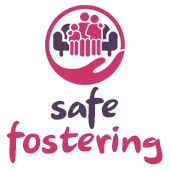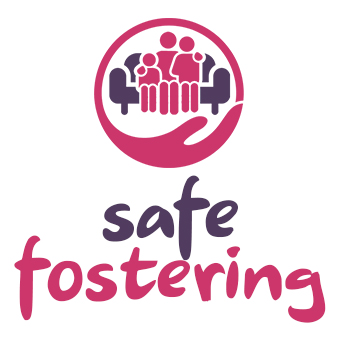WHAT IS FOSTERING
Being a foster carer is challenging but very rewarding at the same time.
We all have and learn skills. These skills can be enhanced when working with vulnerable children in care. The number of children in care in England and Wales has risen more so over the last two years due to the pandemic.
You need to be committed, adaptable and willing to learn to support the vulnerable children in your care. You will be working with a network of multi-agency professionals, such as Health, Education, Social Care and many more as part of a team. You will play such an important role for looked after children and therefore need to know that your contribution is recognised, respected, and valued. You will gain an understanding of systems and levels of authority so that children in your care are safe, feel fully part of family life and can reach their potential.
Most children looked after by local authorities in England and Wales are in foster care. Anyone wanting to be a foster carer, by law, has to be approved by a fostering service provider following assessment and recommendation by a panel.

There are different kinds of foster placements.
Emergency placement
When children need to be removed quickly and urgently from danger or neglect, without notice or much information. Foster Carers help to ease the trauma by providing a safe environment; as children are often very tearful and scared. This may only be for a few days but could become a short-term placement depending on social care.
Short term placement
This is when children are expected to be returned to their family after a short period of time of being in care. Sometimes they are moved onto other forms of care (adoption, permanent fostering or special guardianship). In these cases, the placement can be fixed days, weeks or months while long-term care is arranged.
Long term fostering
This placement is when the child stays with Foster Carer(s) for an indefinite time that can last years. There needs to be careful planning and constant reviews. The foster carer will provide a secure, stable home environment. The Foster Carer must promote contact and interaction with birth family members and ensure plans for their future.
Permanent fostering
In this placement the young person stays with the same carer(s) until they reach the upper age limit for being looked after. This arrangement gives the young person a stable home environment and belonging over several years; it is hoped that a supportive relationship will continue when they grow up and move into independent living. The government refer to this as ‘a route to permanence.’
Carers who offer permanent fostering have special training and continued support from their fostering agency. The match between child and carers has to be agreed by the local authority fostering panel.
Placements for unaccompanied young people
Children who arrive in this country from overseas seeking asylum often come alone and have suffered extreme traumatic experiences. They have left home and loved ones and find themselves where language and culture are strange to them. The Foster Carer needs to take into account their own culture and religion and the need to develop the young person(s) own identity. The fostering agency must ensure they have strong links with their own cultural community, providing interpreters when needed to assist with fitting into the wider society.
Parent & child placements
Sometimes parents need additional support with their parenting skills. The Foster Carer together with the Parent & Child, the agency and your supervising social worker give support and advice; this is carried out through regular assessments and progress reports. These types of Carers will have specialist training.
Parents themselves are not actually in foster care, but the home environment a Foster Carer can provide may be the best way they can grow to be effective parents.
Placements for disabled children, including short breaks
Children with specific needs require specialist foster carer(s) and long-term commitment in helping them manage their disability and move towards independence.
Where a child lives with their family, Foster Carers can provide short breaks for the family by looking after children for an evening, a day, overnight or for a weekend – this is sometimes known as respite care. This helps make it possible for children to stay with their families. Even though each stay may be short, it is important for the carers to make a long-term commitment.
Some Foster carers provide short breaks to different children at different times.
Placement support
Fostering is challenging and carers need a break from time to time, especially with longer placements. It is the responsibility of the fostering agency to find a suitable short-term placement. Some Foster Carers prefer to offer this short, time-limited placement support. Sometimes this is with other approved Foster Carers; at other times it may be with a friend or relative of the carer (subject to the agreement of the local authority social worker). After the short-term placement the child goes back to their main carer. However, if the child goes on a trip or stays with family or friends, the foster carer is still the main carer.
Supported lodgings
This applies to young people aged 16 and 17 who cannot live with their families and in many cases have been in foster care and are now more independent, at college or employed. Until they reach the age of 18, they are still under fostering regulations. They live in a household as lodgers but no longer have to be part of a family. The idea is to help them move from family life to independent living but still safe and supported as they develop the skills they will need for adulthood.
Staying Put Arrangement for post 18-year-olds
If a young person stays living with Foster Carer(s) after they are aged 18, they are no longer classed as ‘looked after’ and it is no longer a fostering placement under the regulations. However, young people who are not ready to be independent can stay with foster carers until they are aged 21 under a Staying Put arrangement. Young adults who are in education or training can stay until they are aged 21 or even longer. The local authority can give carers training and financial support but the young people are no longer classed as foster children.
Remand care
If a young person is taken into custody this is often very damaging and can lead to them reoffending. Young people over 10 years old in this situation can be looked after by remand carers who give them supportive accommodation in a family home. Examples include young people on remand or on bail and waiting for court appearance, or having just come out of a young offender’s institution. Remand foster carers will often have to be involved with solicitor meetings, police visits and court hearings. They may be expected to give information and to complete reports.



